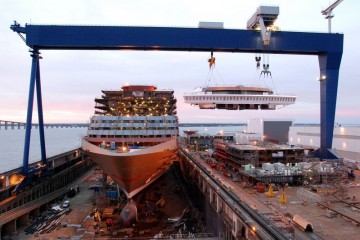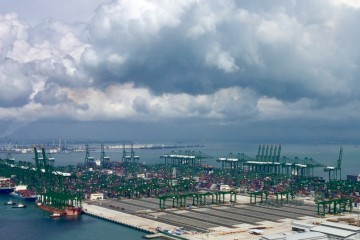Shipping’s climate roadmap is essentially a time-buying device. It buys time for countries that want to avoid anything stringent soon, for bureaucrats that want to be sure of the feasibility of measures before proposing a target they might not attain – and for countries that are positioning themselves to be the future global thought leader on the matter. The US president-elect’s transition team is full of apparent climate deniers; the EU is absorbed by internal inconsistencies, so the field is free for China to take that leadership role in the coming years.
China is prepared: it has acquired expertise, conducted pilots, introduced measures and created institutions that will guarantee that future global measures will bear a Chinese stamp. Just take the example of market-based mechanisms. These mechanisms, such as an emission trading scheme or carbon tax, are necessary to create an incentive for shipping to move towards a carbon-neutral pathway. Despite studies and arduous discussions in the past, no such thing exists for shipping, but it is everybody’s guess that this will come someday.
Over the last years, seven Chinese regions have experimented with emission trading schemes. In typical Chinese fashion, these pilots will now be scaled up and a national ETS will be introduced in 2017. In one of the pilots, the one in Shanghai, ports and local shipping were included in the scheme. So actors like the Shanghai International Port Group and Cosco Shipping monitor their emissions and make sure they remain below their assigned cap. The national scheme does not include ports or shipping yet, but this might well be included later, also considering that aviation forms part of the eight sectors covered by the scheme. Add to this the ambitious emission target in the 13th National Five-Year Plan of this year, the roll-out of emission reduction measures in ports (shore power facilities), and the technical cooperation that China is engaged in, such as the Global maritime energy efficiency partnerships (GLOMEEP), supported by the Global Environment Facility, UNDP and IMO. You get the picture: China is serious about reducing emissions in the maritime sector.
China’s rise as a leader in the field will have impacts beyond China: it has the global ambitions and the institutions to become a hub. For the global ambitions, just look at the One Belt One Road initiative; this platform for “harmonious exchange” between nations for a smooth supply chains could be one of the vehicles to expand and link emission trading schemes, in particular when it comes to freight transport. For institutions, think of the Shanghai Shipping Exchange and the Chinese carbon exchanges that could at some point be merged – so as to get a freight rate that includes a carbon emission right. Decarbonisation is not only an environmental affair, but also a business opportunity.
The momentum for Chinese leadership might have come sooner than expected. A Trump presidency does not exactly promise hyper-activity on shipping’s carbon emissions. The EU evidently has a wealth of experience on emission trading that could be usefully applied to the shipping sector, yet seems to be unsure on a way forward. Even if it would decide to include shipping in the EU-ETS, for which there is a good case, it does not seem to have the ambition or means to upscale it to a larger part of the world.
Read my lips, when we arrive in 2023 – realistically the first date we could expect a decision on global market-based mechanisms in shipping – it will be China that leads the pack.
2 Comments
Comments are closed.




Olaf, I don’t see that ETSs or monitoring will have any beneficial role in reducing emissions from this sector. There are only two ways to get to where the shipping sector needs to be: 1) a hefty carbon tax enforced globally or 2) progressively stricter, difficult-to-attain performance standards imposed by individual or groups of nation-states covering their entire EEZs.
Little will come of fuel switching and bold technological leaps are needed not only in what ships look like but the role they play in international shipping. My hunch is China will not be leading those moves towards a zero-carbon future. Also, please do not count the US out in these areas just because of our recent national embarrassment. The situation has already become motivational and we still have 40 days of sanity left.
I think (and hope) we are going to experience innovations in shipping, as we don’t have a multitude of options…
Shipping and innovations will be in the programme of the conferences of Euromaritime 2017, the blue growth exhibition from January 31st to February 2nd 2017 in Paris. http://www.euromaritime.fr/94/conferences